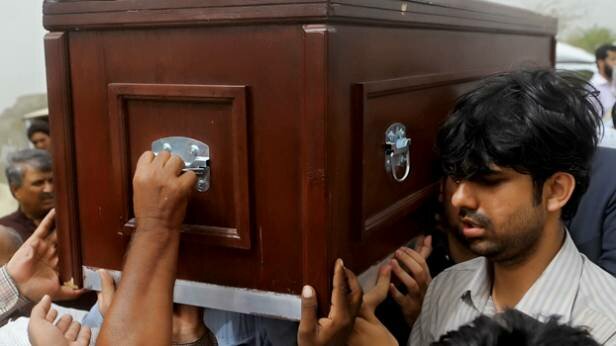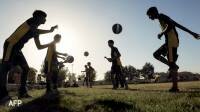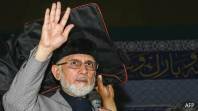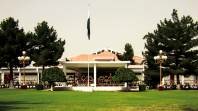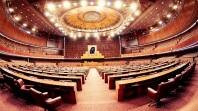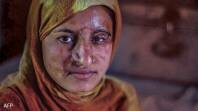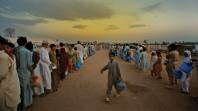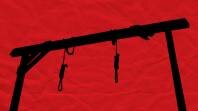Every journalist knows that some lines are best not crossed in Karachi, the commercial hub of Pakistan. After all it is better to be safe than sorry, or dead.
In the newsroom before a story goes to print, editors check each word. They cross out references and replace some words such as names of political parties, spy outfits or banned terrorist outfits with hints that an informed reader can make sense of. They do this so that the message gets across yet the reporter does not get into trouble.
In 2011, Wali Khan Babar, a young journalist associated with the Geo Television Network was shot dead. Three years and seven deaths later his family finally got justice.
His is a story that explains the dangers associated with reporting against the powerful stakeholders of the city.
Babar was the only Pashtun correspondent working at the Karachi bureau of the largest television network of the country. He was courageous, and often reported on the violence going on between the Pashtun representative Awami National Party (ANP) and the Mohajir representative Muttahida Qaumi Movement (MQM). Weeks before his death Babar was worried because he was getting death threats every other day.
A report titled ‘Roots of Impunity’ compiled by the Committee to Protect Journalists gives a detailed account of the circumstances that led to his murder.
According to the report on January 13, Mani, a member of a political party got a phone call from Faisal Mota, another member of the same political party. Mani was asked to wait outside the Geo offices where two other members of the same political party would give him keys to a silver Suzuki parked behind Babar’s car.
When Mani arrived at the office the two men, Zeeshan and Liaquat were already there. They gave him the keys, a mobile phone with a 50 rupee credit and instructions to call them when Babar left for work.
Mani did as he was told. He called Zeeshan at 8:30pm when he saw Babar leaving. Then he called Mota who kept him on the phone and explained to him the exact route Babar took daily. Mani followed Babar closely. The two cars got stuck at a traffic jam at Liaquatabad. Zeeshan and Mani suddenly appeared; Zeeshan went up to Babar’s car, shot him six times and fled. The report states that all of this is available in Mani’s videotaped confession found online.
As investigation of the case proceeded, six key witnesses and one prosecutor were shot dead one by one before the case finally concluded. The two main killers have been awarded death sentences and four others arrested and awarded life imprisonment.
At a recent visit to the Geo-Jang group offices the author of the report Bob Dietz offered congratulations on the conviction of Babar’s murderers. “These convictions mark a significant step in addressing the deep-rooted culture of impunity surrounding the murder of journalists in Pakistan. They indicate what can be achieved when the country’s legal system commits itself to pursuing justice. But justice will remain incomplete until the masterminds in Wali Khan Babar’s case are also brought to trial,” he said.
It was discussed that part of the credit went to the media for keeping the story alive, despite threats to reporters who worked on follow-up stories. Powerful political parties and their militant wings are only part of the threat journalists face in a city where 3251 people were killed last year in various acts of violence. Recent events have shown that even non-journalistic staff of media groups is not safe.
In a period of six months the Express media group was attacked thrice. The first attack took place in August when unknown men opened fire on the Express news building injuring two members of staff. The second attack took place in September when unknown men hurled grenades and opened fire on the building injuring a security guard. The third attack took place in North Nazimabad, a busy neighbourhood of the city when the media group’s DSNG van was fired at killing three staff members.
After the third attack, a telephone call was taken on a live television show, where Ehsanullah Ehsan former spokesperson of the Tehrik-e-Taliban Pakistan (TTP) accepted responsibility for the attack.
Police said that two of the attackers killed in an encounter on March 6 belonged to a banned religious group and had previously worked for a political party according to media reports.
Following the attack, the Express Tribune a liberal English daily of the media group, changed its editorial policy drastically saying it would carry no exclusive stories or opinion pieces against any militant organization or right wing political parties, according to a story published in the international daily, the Guardian.
Armed men also hurled grenades at the building housing the Aaj TV office in Karachi, which also houses the offices of the daily newspaper, the Business Recorder.
There has been a general sense of frustration among reporters since these attacks, because they feel they cannot work to their fullest. “My editor refused to publish my two detailed features citing security issues. The first was regarding the forced migration of the Ahmedi community and the second about sectarian violence,” said a reporter of an English newspaper requesting anonymity. “I want to take a break and then come back when I am able to write about things that matter.”
An editor of another newspaper, also requesting anonymity admitted, “These are troubled times. We cannot risk the life of a reporter for a good story.”
“Journalists working in Karachi face pressures from political parties, religious and sectarian outfits and intelligence agencies,’’ Mazhar Abbas, Secretary General of the Pakistan Federal Union of Journalists, said, ‘Each has a different form of expressing their dislike for a story. While some may hurl grenades others will give you a phone call and politely explain their displeasure before harming you,” he said hinting at the military and its intelligence agency.
He added that in these troubled times it is vital for all media organizations to provide journalists training to ensure their safety. “Things have gotten worse. Previously there were few journalists working in the field. Today the numbers have increased yet not a single media house provides journalists in-house training to handle conflict situations.”
Meanwhile media offices in the city have increased security measures. Some have erected barbed wires and cement blockades outside their buildings. Others have placed a security guard on each floor to check visitors and employees alike before they enter the premises. In either case, the freedom of the media in the city is at stake—truth is being sacrificed as armed men who attack with impunity roam free on the streets.
The writer is a journalist based in Karachi.

